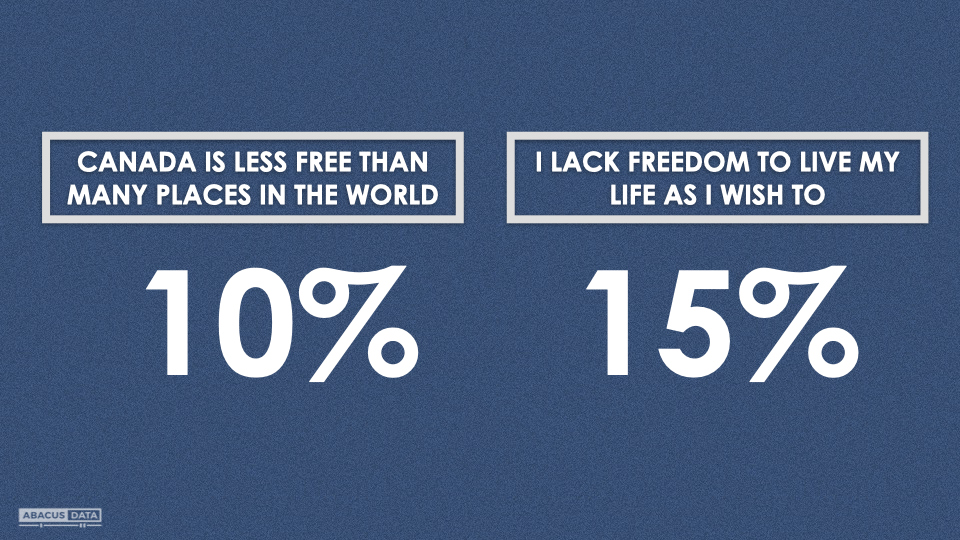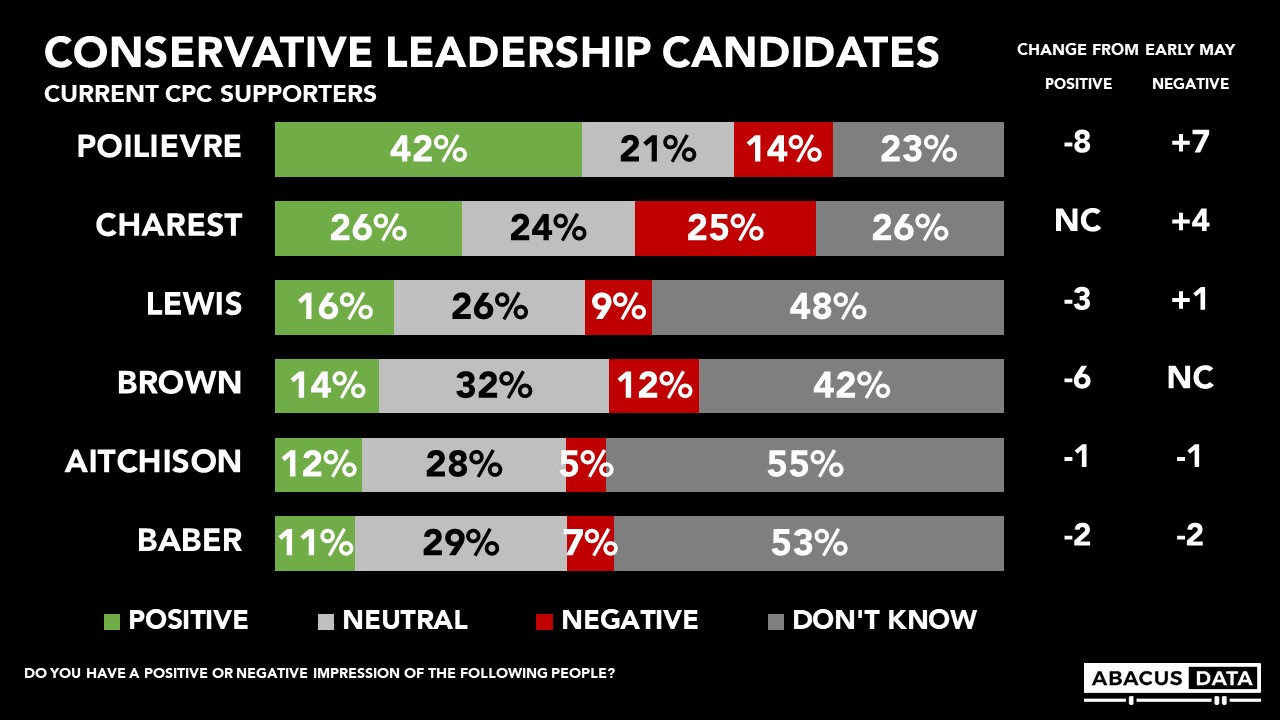Vaccine hesitancy in Canada: How much is there, who are the hesitant, and why are they hesitant
April 17, 2021
Listen to David Coletto’s new podcast inFocus with David Coletto
This week we completed a national survey of 1,981 Canadian adults (from April 9 to 14) with a series of questions on Covid-19 vaccine hesitancy. This work is being done as part of broad Task Group working to promote vaccine acceptance, under the banner “Faster. Together”. More information is included about this effort at the end of this release.
CURRENT STATE OF HESITANCY
Today, 8% of Canadian adults say they will never take a vaccine for Covid-19. A majority (64%) either have already had a shot or will take one as soon as it is available to them.
This leaves 28% who currently say they would “prefer to wait a bit to see how the vaccine works out as others take it”, or “would prefer not to take one, but could be persuaded to”.
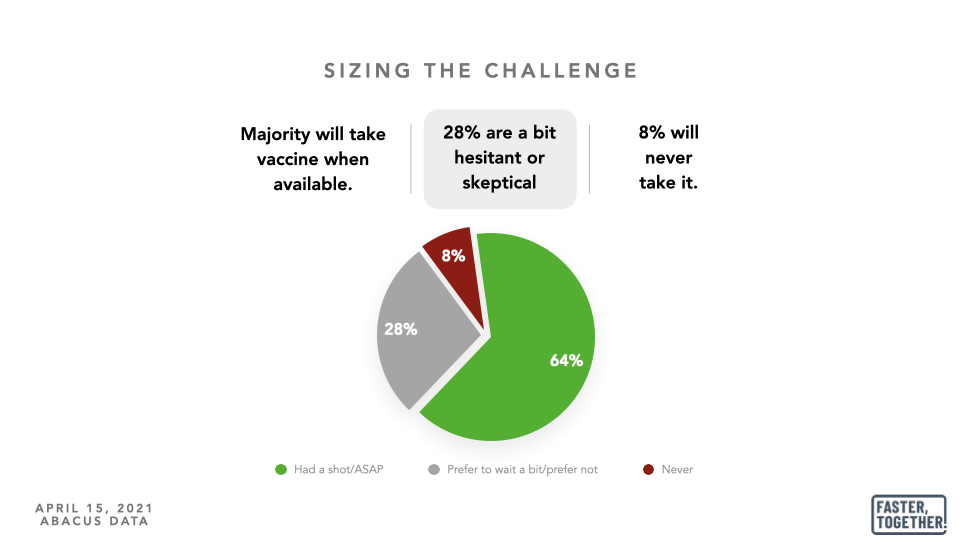
In November, before vaccines were available, 56% were hesitant and 11% ruled out ever taking one. In short, we have seen less hesitancy since the fall, but little change during the March-April period.
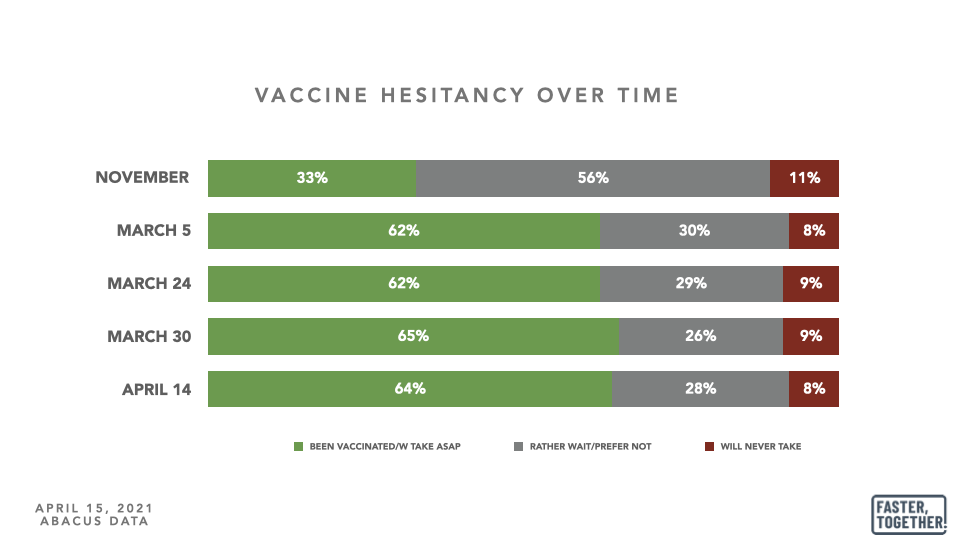
Hesitancy is higher than average in Alberta, among those with high school education, and among those in the 30-44 age group. People who self-describe as “right of centre” are considerably more likely than those on the left to reject the idea of being vaccinated.
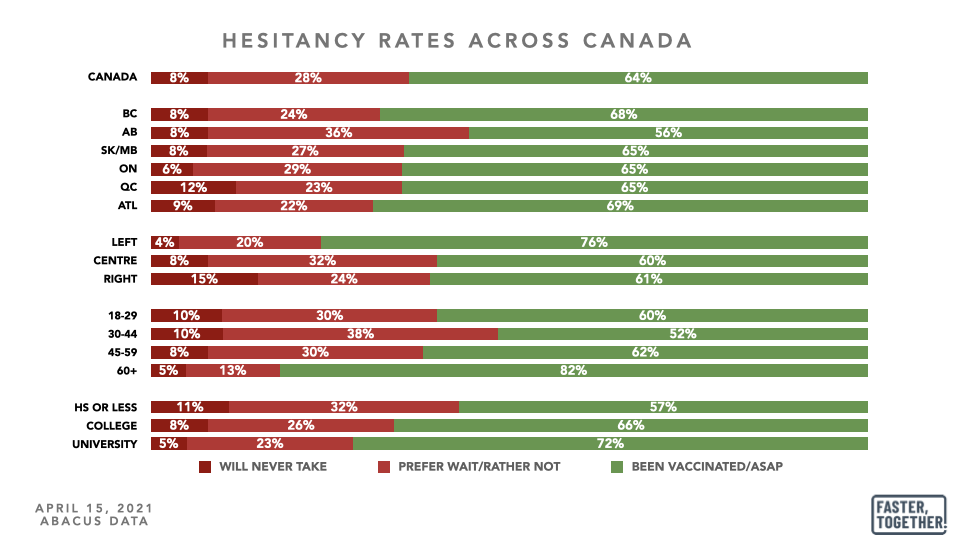
Hesitancy rates are influenced by concerns about side effects and are different depending on the specific vaccine in question. Since the beginning of March, comfort levels with the Pfizer and Moderna vaccines have increased, while comfort with the Astra Zeneca and Johnson and Johnson products has declined.
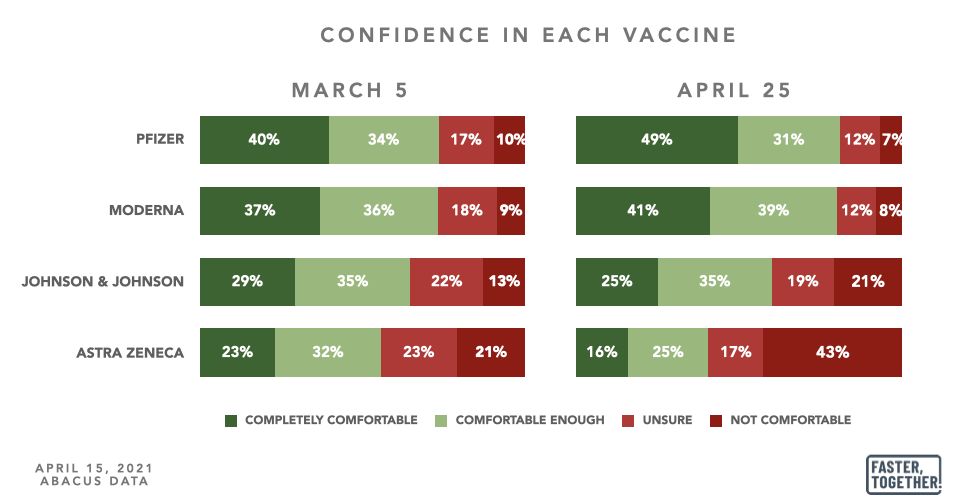
The most important reason for hesitancy is a worry that the vaccines were created quickly and that the long-term effects might not be fully known. Second on the list of drivers of hesitancy is a fear of blood clots, followed by fear of flu-like side effects.
Relatively important in the list of reasons people are hesitant is the idea of waiting till something other than the Astra Zeneca vaccine was on offer to you. 26% of the hesitant say this is a major factor in their hesitancy.
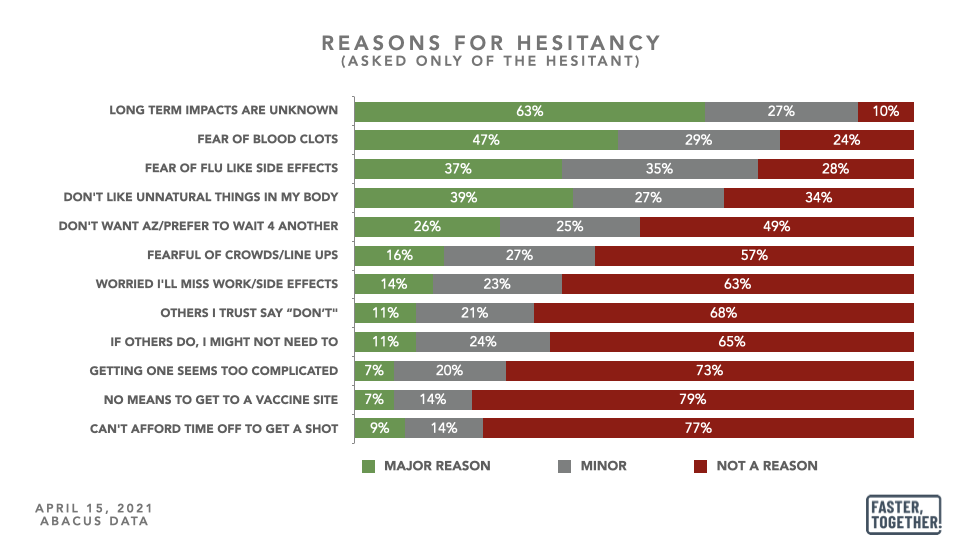
Different groups in society have different factors that rank higher or lower in affecting their hesitancy. As an example, fear of blood clots is significantly higher among women than among men and especially high among those aged 45-59. The idea that “if others take it, maybe I don’t have to” is especially common among those aged 30-44.
UPSHOT
“The Covid-19 battleground is about the speed of vaccinations and the speed of spread of variants of the virus. Making sure everyone takes a vaccine when one is available is critical. Therefore understanding and addressing the root causes can help speed a return to more normal life in Canada. The most important thing in this regard, according to our most current data, is reassuring people about the safety of vaccines, the low level of risk and helping build confidence in the array of vaccine solutions on offer. These results are a clear signal that the public is highly attentive not only to the great promise vaccinations hold for an exit from the pandemic, but to stories about side effects.”
FASTER TOGETHER TASK GROUP
The Faster Together Task Group is co-chaired by Bruce Anderson, Chairman of Abacus Data and Hassan Yussuf, President of the Canadian Labour Congress and includes participants from the private and public sectors, labour movement and civil society.
It has been struck as a voluntary “coalition of the willing” who are interested in helping promote vaccine acceptance in Canada as a crucial way to help speed a return to regular life. The group welcomes any organizations that may be interested in being part of this effort and which can help reach a broader audience is encouraged to reach out and learn more: banderson@abacusdata.ca.
The public opinion research in support of this Task Group is being supported financially by the Canadian Life and Health Insurance Association.
And don’t miss any of our research and analysis, plus get our weekly Worth A Look newsletter. Sign up today.
Interested in an exclusive polling brief after the federal budget? Find out more
ABOUT ABACUS DATA
We are the only research and strategy firm that helps organizations respond to the disruptive risks and opportunities in a world where demographics and technology are changing more quickly than ever.
Find out more about what we are doing to help clients respond to the COVID-19 pandemic.
We are an innovative, fast-growing public opinion and marketing research consultancy. We use the latest technology, sound science, and deep experience to generate top-flight research-based advice to our clients. We offer global research capacity with a strong focus on customer service, attention to detail and exceptional value.
We were one of the most accurate pollsters conducting research during the 2019 Canadian Election.
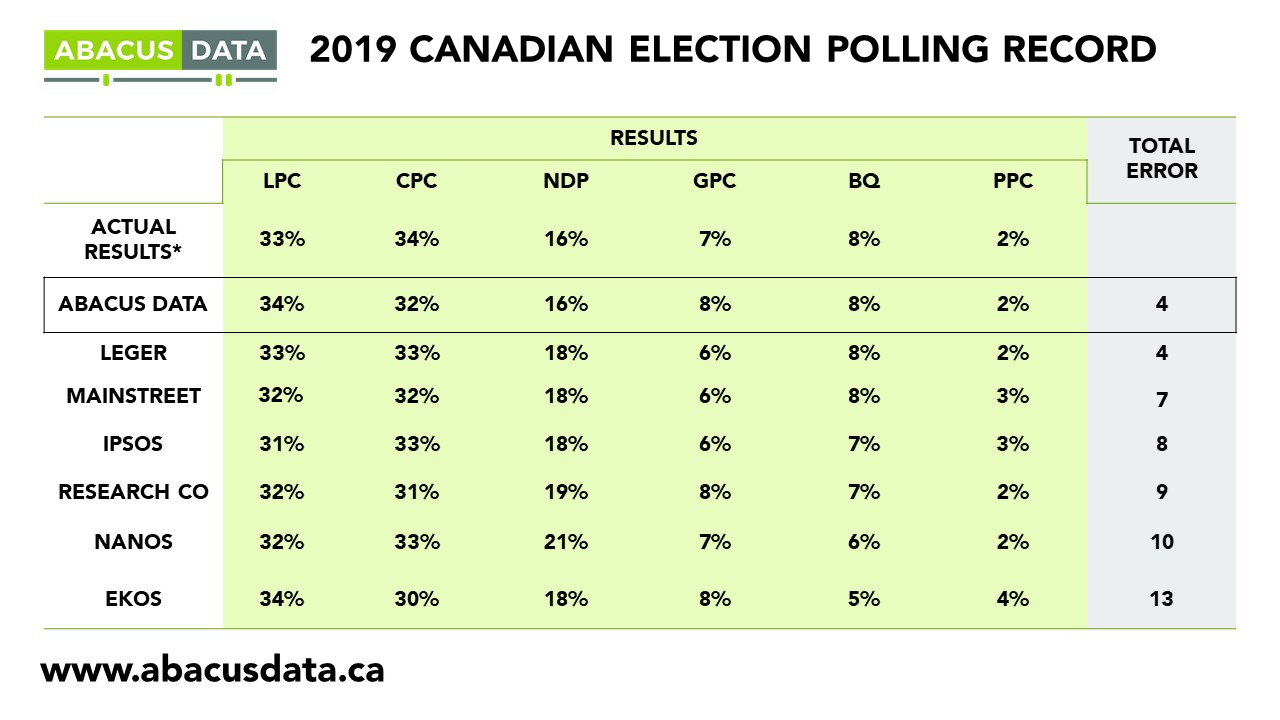
Contact us with any questions.
Find out more about how we can help your organization by downloading our corporate profile and service offering.
METHODOLOGY
The survey was conducted with 1,981 Canadian adults from April 9 to 14, 2021. A random sample of panelists were invited to complete the survey from a set of partner panels based on the Lucid exchange platform. These partners are typically double opt-in survey panels, blended to manage out potential skews in the data from a single source.
The margin of error for a comparable probability-based random sample of the same size is +/- 2.1%, 19 times out of 20.
The data were weighted according to census data to ensure that the sample matched Canada’s population according to age, gender, educational attainment, and region. Totals may not add up to 100 due to rounding.

